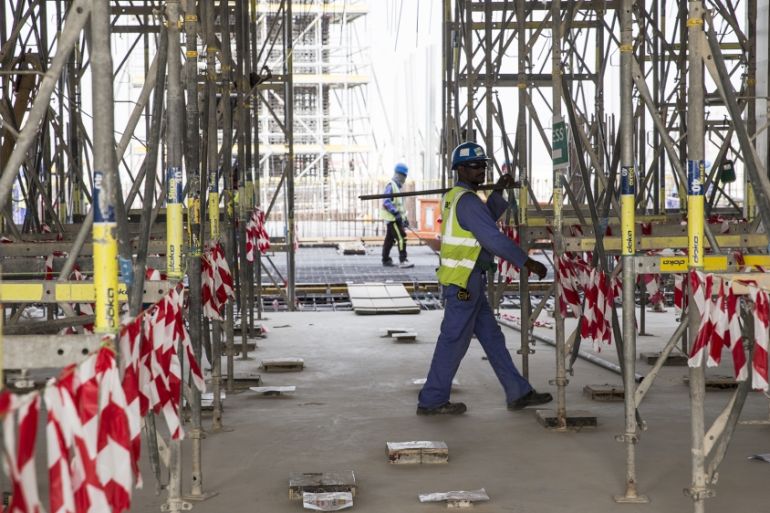UN calls on Qatar to reform workers rights, abolish death penalty
UN-led review of Gulf state’s human rights record calls for changes which Doha labels ‘a work in progress’.

Geneva, Switzerland – United Nations member states have called upon Qatar to reform its domestic workers’ rights policy and ban capital punishment.
Qatar is one of the 14 states currently undergoing a Human Rights Council assessment, a UN-led process known as Universal Periodic Review (UPR) involving all 193 member states.
Keep reading
list of 4 itemsBirth, death, escape: Three women’s struggle through Sudan’s war
Does Israel twist humanitarian law to justify Gaza carnage?
Vatican denounces gender-affirming surgery, gender theory and surrogacy
Since its last review in 2014, the Gulf country has taken a number of initiatives to bring its national legislation in line with international human rights covenants, said a Qatari official at the country’s review on Wednesday.
Soltan bin Saad Al-Muraikhi, state minister for foreign affairs and head of the delegation, listed several acts and decrees issued since the last visit of the Special Rapporteur for Human Rights in 2014 aimed at upholding the rights of women, children, persons with disabilities and migrant workers.
Qatar has acceded seven UN treaties, including two major ones in 2018, the International Covenant on Civil and Political Rights and the International Covenant on Economic, Social and Cultural Rights, which set out the civil, political, economic, social and cultural rights that everyone is entitled to, based on the Universal Declaration of Human Rights.
However, the member states called upon Qatar to remove its reservations to some of the articles of the Covenants and swiftly adapt its national laws to their principles.
“It’s a work in progress, we have created committees that shall review our legislations based on the articles of the Covenants,” said an official from its Ministry of Foreign Affairs.
Right to nationality
The three main human rights issues emerging from the review cycle on Wednesday included the right of Qatari mothers to transfer the nationality to their children, the abolition of the death penalty and the implementation of the most recent labour reforms.
Delegates recommended that Qatar amends its nationality law to allow Qatari women married to non-citizens to transmit the nationality to their children from birth, in particular for those who would otherwise be stateless.
Last year, Qatar amended its residency law to ensure that children born to Qatari mothers and foreign fathers are entitled to permanent residency permits. However, Qatari mothers cannot transmit the nationality to their children, an issue considered a violation of both women and children’s rights.
Several countries also called for a permanent moratorium on the death penalty. A Qatari delegate at the Council pointed out that Qatar hasn’t implemented the death penalty since 2005 except for a case pertaining to “a particularly heinous crime”.
Labour reforms
Qatar was also asked to extend its recent labour reforms to domestic workers, especially by the creation of effective inspection tools and safety nets for workers subject to abuses who wish to leave their employers.
In October 2017, Qatar signed a three-year cooperation agreement with the International Labour Organization (ILO) for 2018 to 2020. Under the agreement, ILO provides advice on improving the system of wage protection, inspection, and the replacement of the kafala (sponsorship) system.
To address the exploitation of workers and human trafficking, the government has established an agreement with sending countries’ offices, aimed at monitoring the recruitment process to make sure it abides by international standards.
However, concerns remain that amendments to the labour code following the abolition of the kafala system in 2017 allow it to be in practice.